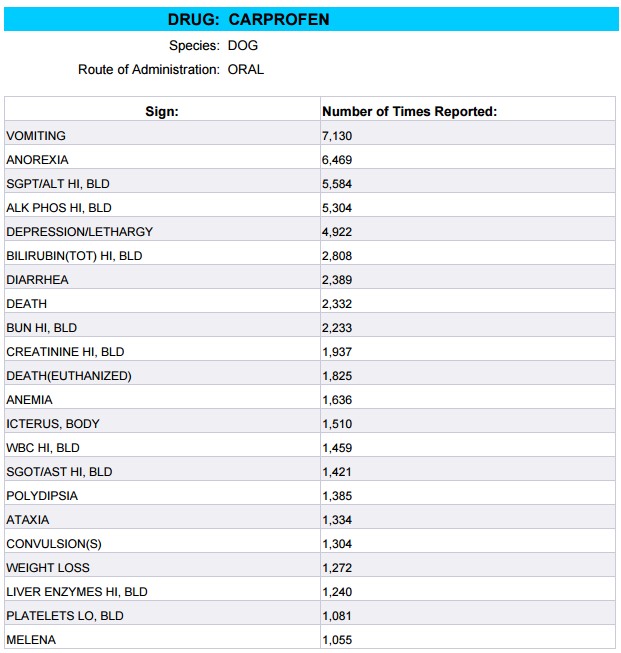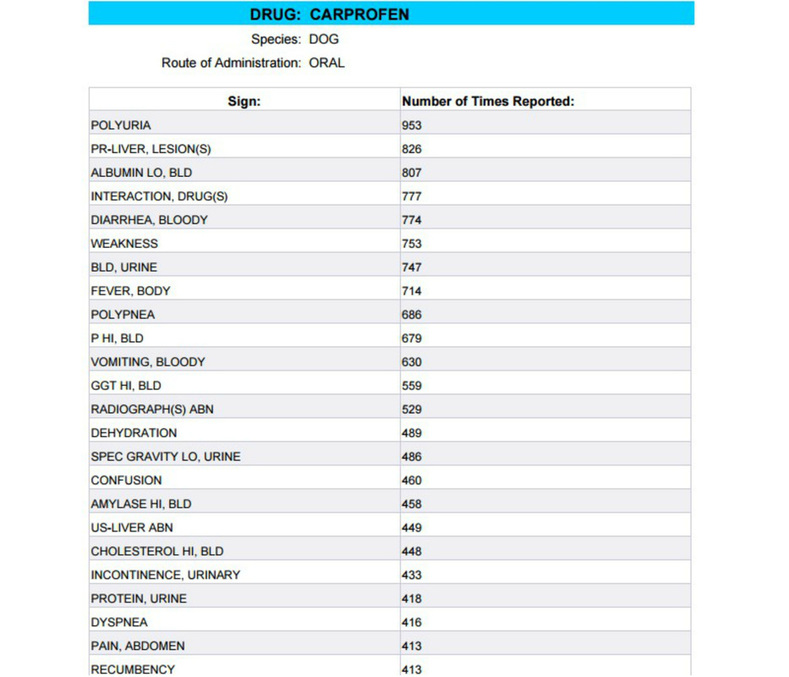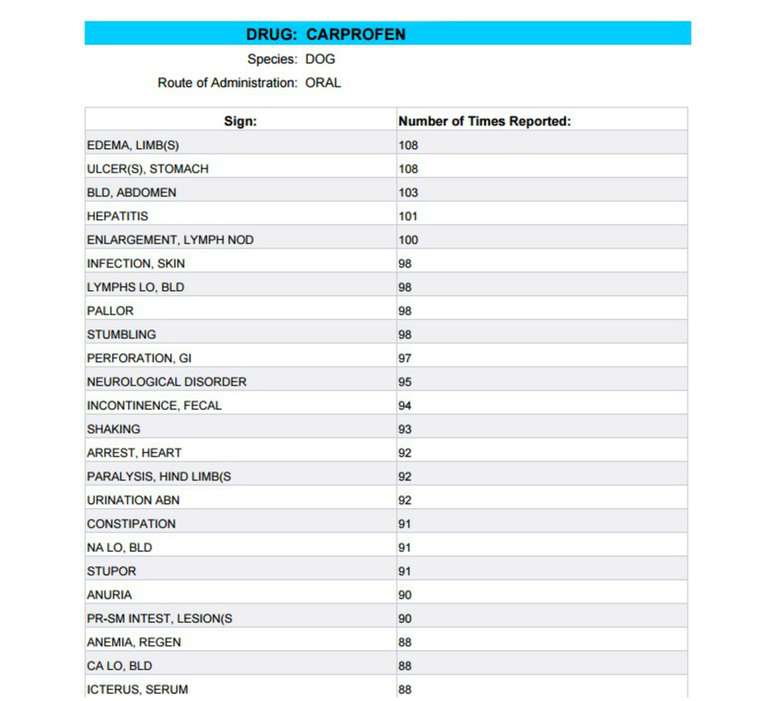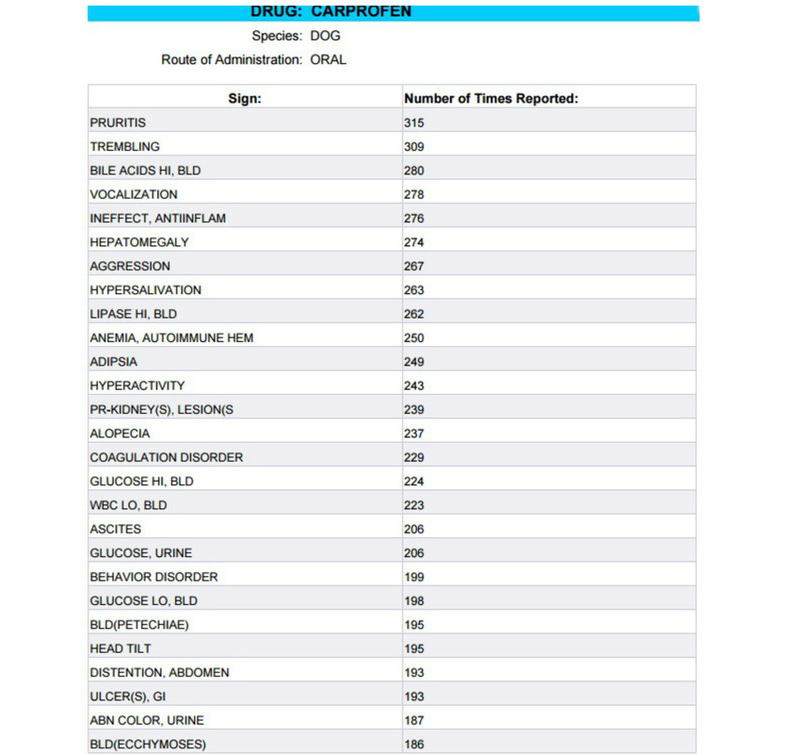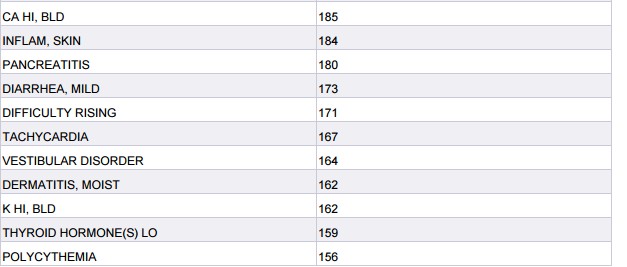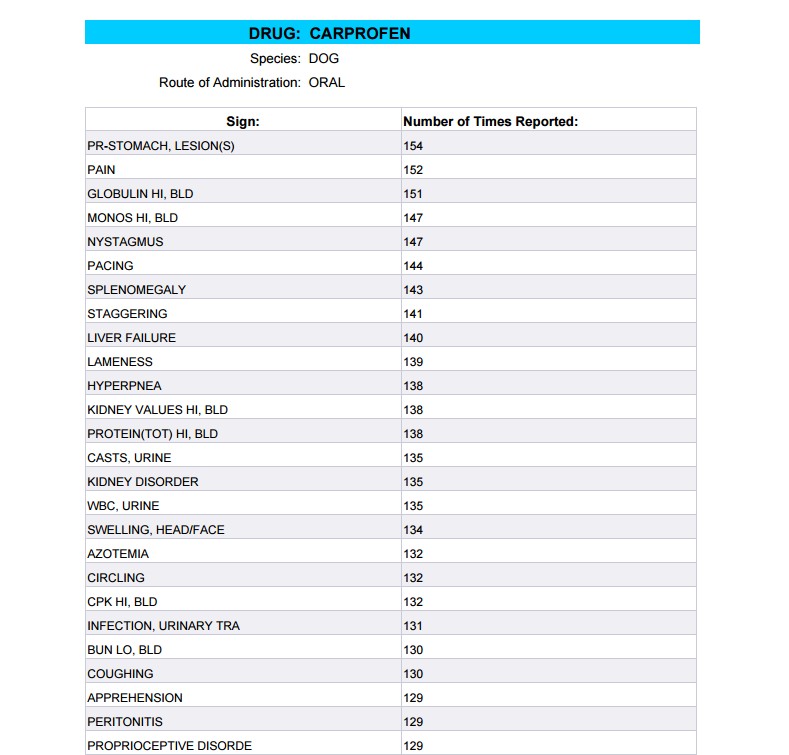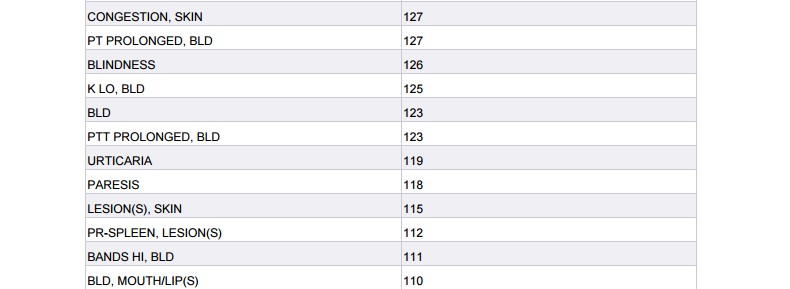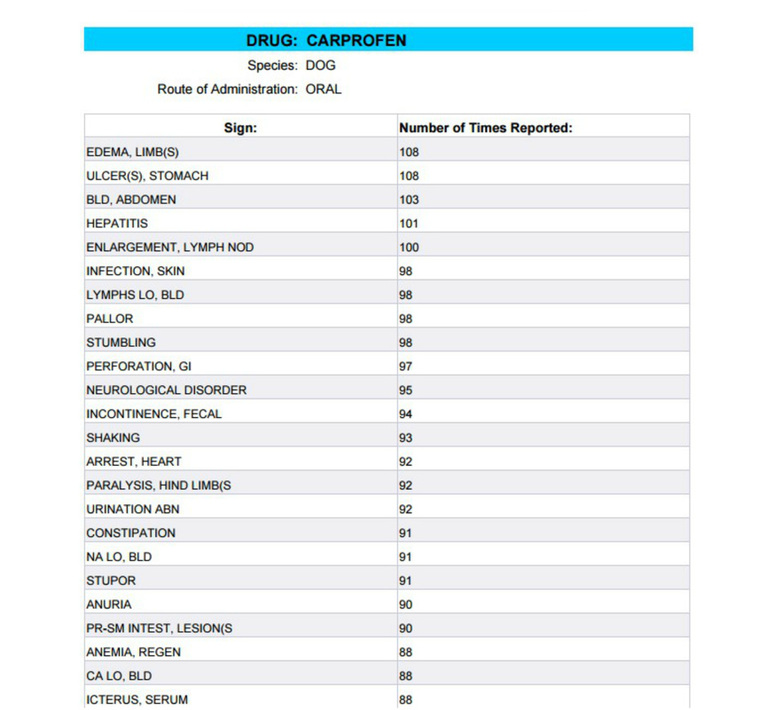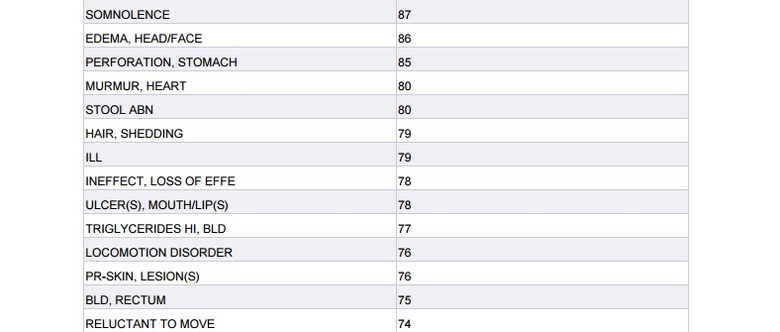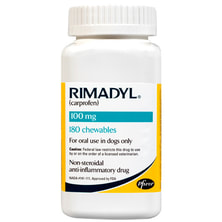
By LowshenAustralia
Nonsteroidal Anti-Inflammatory Drugs (NSAIDs) are the most widely used medications in veterinary medicine commonly prescribed for pets with various painful and inflammatory conditions, including arthritis and post-surgical pain relief. The most common adverse effects are stomach ulcers, kidney, liver, and blood disorders. When treating chronic pain associated with arthritis, the effectiveness of NSAIDs can be improved by physical therapy, use of joint protective drugs, and diet and exercise to control weight.
Nonsteroidal Anti-Inflammatory Drugs (NSAIDs) are the most widely used medications in veterinary medicine commonly prescribed for pets with various painful and inflammatory conditions, including arthritis and post-surgical pain relief. The most common adverse effects are stomach ulcers, kidney, liver, and blood disorders. When treating chronic pain associated with arthritis, the effectiveness of NSAIDs can be improved by physical therapy, use of joint protective drugs, and diet and exercise to control weight.
|
There are a number of non-steroidal anti-inflammatory drugs (NSAIDs) approved for use in dogs including: Rimadyl (active ingredient carprofen) and EctoGesic (active ingredient etodolac). Feldene (common ingredient piroxicam) is often prescribed for use in dogs with cancer for pain control. There are currently no approved NSAID products for cats in the United States and any NSAID use in cats must be done carefully under a doctor's supervision. Since control of pain and inflammation in pets with arthritis is likely to require some type of chronic therapy, it is important to know the side effects in arthritic pets treated chronically (greater than one year) with non-steroidal medications.
|
|
Although Rimadyl and EctoGestic have only recently become available, there are some statistics. In 1998 Rimadyl led the list of drugs reported to cause adverse reaction in dogs(43.4% of all adverse drug reactions were due to Rimadyl). This is due to any number of causes: older pets who are often dehydrated, pets taking multiple medications such as heart medications that could increase toxicity of NSAIDs like Rimadyl, have organ disease or failure, and are not regularly screened for underlying problems and side effects. While NSAIDs can be safely used for short-term pain relief in most pets, other, safer options are preferred for long-term relief in arthritic pets, for whom Rimadyl is most often prescribed.
Side Effects of Rimadyl, EctoGesic, or any NSAID: Gastrointestinal System - bleeding, ulceration, perforation, inflammation of the pancreas, diarrhea. Kidney - kidney failure. Older pets are at greater risk. Any time dehydration is present, the risk of kidney disease increases. Pre-treatment blood and urine testing can detect some but not all kidney problems. Liver - elevated liver enzymes, liver failure. The most serious side effect seen in dogs taking Rimadyl was liver disease. Labrador Retrievers seem to have predisposition to develop more serious side affects leading to liver failure than other dog breeds. Immune System - anemia, skin reactions. Neurologic System - Seizures, paralysis, unsteadiness Miscellaneous - Aggression, depression, hyperactivity. Musculoskeletal System - cartilage damage. Both Rimadyl and EctoGesic appear to cause less cartilage destruction than other NSAIDs, although the safety margin in these products is very narrow: elevated dose level of EctoGesic at 2.7 times the maximum daily dose causes gastrointestinal ulcers, vomiting, and fecal blood and weight loss. |
|
Drug Interaction - NSAIDs like Rimadyl and EctoGesic can interact with other medications which can result in increased or decreased concentration of the medications in the pet's blood. Drug interaction most likely occurs in pets taking medications for epilepsy, such as phenolbarbital, or for heart failure, such as Lasix (furosemide), digoxin, and Enacard.
To treat post-surgical pain, NSAIDs are more effective when used together with other pain relief medications, and in well-hydrated pets with normal blood pressure and kidney function. For pets with arthritis, owners can try therapies to reduce pain and inflammation including omega-3 fatty acids, acupuncture, antioxidants, magnetic beds, and herbs. Glucosamine and chondroitin sulfate supplements can also nourish and repair the cartilage. Although in many pets NSAIDs can be used safely for post-surgical pain relief for a short period of time (3 to 5 days), it is important to carefully follow the prescribed dosages. Accidental Exposure of Pets to NSAIDs - In January, 2005, The ASPCA Animal Poison Control Center alerted pet owners to the dangers of NSAIDs used for humans, such as aspirin, ibuprofen, naproxen and ketoprofen. While these medications can be beneficial to humans, they can potentially be very hazardous or even deadly to pets," warns Dr. Steve Hansen, veterinary toxicologist and Senior Vice-President of the ASPCA Animal Poison Control Center. |
Listed NSAIDs
|
NSAIDs are used to control signs of arthritis, including inflammation, swelling, stiffness, and joint pain. Inflammation—the body’s response to irritation or injury—is characterized by redness, warmth, swelling, and pain. NSAIDs work by blocking the production of prostaglandins, the body chemicals that cause inflammation.
In the United States, NSAIDs approved for use in dogs include: RIMADYL (carprofen) caplets, RIMADYL chewable tablets, and RIMADYL injectable NADA 141-052, NADA 141-111, NADA 141-199 CARPRAQUIN (carprofen) NOVOX (carprofen) NOVOCOX (carprofen) caplets ANADA 200-366 VETPROFEN (carprofen) caplets ANADA 200-397 CARPRIEVE (carprofen) caplets, CARPRIEVE injection ANADA 200-498, ANADA 200-520 LIBREVIA (carprofen) soft chewable tablets; now called QUELLIN (carprofen) soft chewable tablets ANADA 200-555 METACAM (meloxicam) oral suspension, METACAM injectable NADA 141-213 and 141-219 OROCAM (meloxicam) transmucosal oral spray NADA 141-346 Meloxicam injection ANADA 200-485 LOXICOM (meloxicam) injection ANADA 200-491 MELOXIDYL (meloxicam) oral suspension ANADA 200-550 Meloxicam Solution for injection ANADA 200-540 DERAMAXX (deracoxib) chewable tablets NADA 141-203 PREVICOX (firocoxib) chewable tablets NADA 141-230 ETOGESIC (etodolac) tablets, ETOGESIC injectable not currently marketed NADA 141-108, NADA 141-274 ZUBRIN (tepoxalin) tablets not currently marketed NADA 141-193 GALLIPRANT ( Tablets) prostaglandin E2 (PGE2) EP4 receptor antagonist PIROXICAM (generic name) or FELDENE In the United States, there is one NSAID approved for up to 3 days use in cats: ONSIOR (robenacoxib) tablets. http://www.fda.gov/AnimalVeterinary/ResourcesforYou/ucm419031.htm http://www.fda.gov/ForConsumers/ConsumerUpdates/ucm373009.htm http://www.fda.gov/AnimalVeterinary/SafetyHealth/ProductSafetyInformation/ucm055434.htm |
|
BEWARE OF THE DAMAGING EFFECTS OF INFLAMMATORY DRUGS (NSAIDs) If your pet is being treated for arthritis, most veterinarians will prescribe steroids and non-steroidal anti-inflammatory drugs (NSAIDs). Physical side effects can be scary- including gastrointestinal bleeding and kidney and liver damage. If your pet’s stomach and liver survive prolonged use of NSAIDs, his joints may not. Used long term, these drugs can destroy the cartilage making the arthritis and pain worse. Rimadyl (one of the more popularly dispensed NSAIDs) lists as reported possible adverse drug events by the manufacturer: gastrointestinal vomiting, anorexia and/or abnormal stools; pathology of the liver with or without general hepatic dysfunction; Neurologic (nerves and brain pathologies), urinary pathologies with increased urination, thirst, increased Blood Urea Nitrogen, Creatinine and/or abnormal urinalysis; behavior change; dermatologic (skin problems), immunologic/ allergic pathologies and Death. Some reports contained multiple events. In one study in people in Norway, physicians examined the x-rays of 294 arthritic hips. They found that the hip joints of patients taking NSAIDs had significantly greater damage than those not taking the drug. Steroids like prednisone, prednisilone, injectables like Kenalog and Vetalog etc are devastating to the body over long term use. They can actually bring on heart disease, diabetes, eye damage, osteoporosis, non-regenerative anemia, weaken the immune defense to disease and upset the body’s water and electrolyte balance that weakens the body. |
FDA Toxicology Reports
How to Help Your Dog Walk Pain Free Quickly and Safely
Posting Real Life Stories of Deaths from RIMADYL
ALL NSAIDs are Dangerous!!!
|
12-28-16
My big man, Snoopy passed away Thursday Dec 22 2016 after being put on Rimadyl 100 mg. He was put on the med 10/31 for having a limp on his back leg we started it a few days later due to us going on a trip. He officially started the med on Nov 7 2016. He was on the med for 10 days. On Nov 17 2016 we noticed that he was jaundice and immediately rushed to the vet, where the vet told us it was rat poison (which we DO NOT keep in the house due to my grand babies and our animals.) Our vet swore to us that there was no way that Rimadyl could do this. The vet gave Snoopy a shot of vitamin K and sent us on our way. Over the next few days Snoopy didn't get better at all on Nov 20th we took him back to our vet where he gave us the same run around until we MADE the vet come out to see Snoopy was peeing blood. Our vet decided to admit him shortly after still telling us that the med couldn't be the issue. We than went home and got to doing research finding just horror stories of what this drug was doing. We decided to call the drug company to which they told us to have the vet call them. Snoopy was in hospital for 6 days getting fluids and shots and antibiotics all of which the drug company was being forced to pay for. On Nov 26th he got to come home! He was not himself and was put on a lean beef and chicken diet he was eating a little but not enough and constantly drinking. His temper was not the best and that was never him. He was always a big baby who wouldn't hurt a fly. The vet told us that he would be FINE when he came home. On December 22nd I was up getting my grand babies their breakfast ready and doing my morning things I do and I noticed Snoopy laying in the grand babies room. I went to the bathroom and when I came back out he was having seizures. I made my husband get out of bed and we both lay on the ground trying to comfort him. Snoopy moved to our room where he continued having seizure after seizure. We called our vet and he agreed to meet us in 30 mins. We got Snoopy loaded up into car and rushed him to our vet where he told us "Oh he's having seizures I cant see him take him here." We took him to a emergency animal hospital in Louisville KY. Where we were told at first that it was not the drug and than unlike our vet he went and DID THE RESEARCH on the drug and came back in and apologized to us. The new vet told us that there was a huge chance that it was the drug causing his problems. Snoopy had 2 vets and 3 techs working to try to get him stable and run tests and get on the phone with the drug company, They talked to the drug company 4 times in the 5 hours we were at the new vet office. Unfortunately the toxicity of Rimadyl had turned his blood into septic in his body and his liver was dead. He couldn't be saved. We made one of the hardest decisions of all and had to put him down. The vet said there was nothing they could do that wouldn't cause him more pain and suffering. Our baby died because of lack of information our vet who we had been going to for years failed to give us. Improper storage and handling of this deadly drug because it wasn't even in a bottle that it was suppose to be in. Our baby died because of this POISON. Dec 22,2016 My baby girl, Scarlett passed away early Sunday morning after having surgery and given Caprofen/Rimadyl. The surgeon was very nasty with us when all we wanted were answers. The owner of the practice agreed (recorded conversations) that Scarlett should not have been given Caprofen/Rimadyl because the signs of an adverse reaction to the medication mimics the post-op conditions, that they assured us would be normal to see because she just had surgery.... Our hearts are broken. They stole many years left with our daughter. She was fine before she went in. She was seen by a cardiologist at their facility before surgery for my own peace of mind. Now they are denying that her surgery had anything to do with her death. Happy and healthy before, had surgery, and 2 days later she is gone. It doesn't take a freaking rocket scientist to figure it out!!!! Now.....we are gathering all information and documentation to consult an attorney. We do not have children. Scarlett was our daughter and we will fight for her!!! We are soooo incredibly heartbroken and FURIOUS!!!! Any guidance as we try to move forward is much appreciated. We live in Virginia and the surgery was done at Bay Area Veterinary Surgery in Yorktown Virginia. Nov 29,2016 This is our family love Doozy( only a year old)on Saturday night at the vets. He had sprained his tail somehow so we took him in. The vet prescribed RIMADYL, told us the only side effects would be an upset stomach if it doesn't agree with him. Later that night 30 minutes after his first dose (1 PILL), he had his first seizure and collapsed. Within 1 day he had 17 seizures, lost all mobility, lost all control over his bowels and was bleeding out. He died such a painful death. I kept calling the vet, they said I was overreacting. When we took him in, he seized outside and nobody would help. The vet finally came in and said he's bleeding out(which was obvious). So we decided to euthanize to end his pain. Their conclusion was that he had Evans syndrome. Which didn't make any sense. They lied to our face as we were holding our sweet baby down as he's dying. These people are sick! He was fine before taking that damn pill. I don't care if this pill helps certain dogs, it SHOULDN'T kill others and especially in such a painful way. Our 4 year old is now without his best friend! This shouldn't have happened. I'm so sorry for everyone's loss on this page, please spread the word about RIMADYL. |
**Canine Arthritis And Joint is intended for informational, educational and entertainment purposes only and is not a substitute for medical advice, diagnosis or treatment. Do not attempt to self-diagnose or treat any health condition. You should always consult with a healthcare professional before starting any diet, exercise or supplementation program, before taking any medication, or if you have or suspect your pet might have a health problem. The opinions expressed by Canine Arthritis And Joint are not to be replaced for medical care. This website and the information contained herein have not been evaluated by the Food and Drug Administration. The information and opinions on Canine Arthritis And Joint are not intended and cannot be used to diagnose, treat, cure, or prevent any disease. This applies to people and pets!
This site uses affiliate links such as banners you may see that allows for paid commissions.
This site uses affiliate links such as banners you may see that allows for paid commissions.
Canine Arthritis And Joint © Copyright 2015-2024
Designed By Paw Prints Web Design
Designed By Paw Prints Web Design





